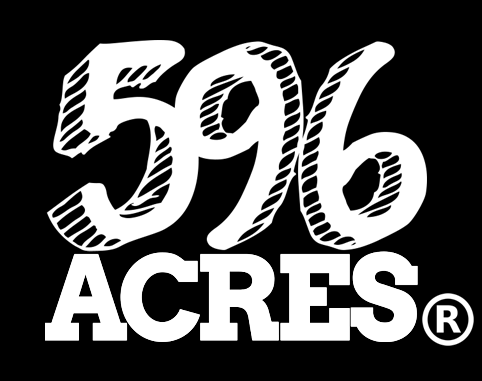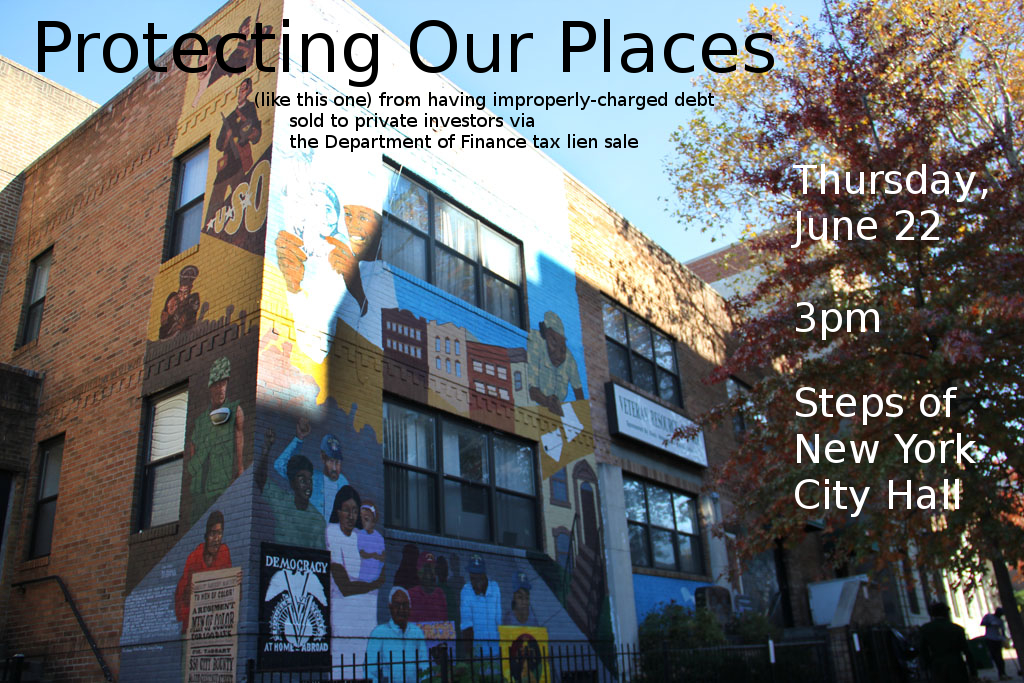
127 West 138th Street in Harlem, which is used as an open space and lawn by neighbors, is restricted to community facility use by a restriction in the deed that was placed on the date of the property purchase by a developer at auction from the city for a reduced price.
Thank you for holding this hearing and accepting my testimony today. My name is Paula Segal. I am an attorney and the founding director of New York City’s Community Land Access Advocacy organization, 596 Acres.
I am here to wholeheartedly support Intro 1182’s requirement that the City produce a searchable electronic database of deed restricted property. I think the bill does not go far enough. It requires that the database contain “all real property of the city sold, exchanged, or otherwise disposed of if the deed to such property contains a deed restriction imposed by or on behalf of the City,” a historical record.
I urge that this bill be amended to require the searchable electronic database to also include ALL property in the City of New York if the deed to such property contains a deed restriction imposed by or on behalf of the City. The key difference between what Intro 1182 requires and my recommendation is that the database would contain not only those properties that have been disposed of but those that exist. A backward look at what has already been lost is important but in order for this Council and the residents of our neighborhoods to be able to protect the places that matter to them, we need to have a prospective list of all the properties that we as a City have interests in via the deed restrictions imposed by or on behalf of the City.
Intro 1182, the proposed rules that the Mayor’s Office put forward and the proposed Department of Citywide Administrative Services (DCAS) rules all add transparency to the process of lifting deed restrictions and I commend this as an improvement to the current process. But the legislation and rules do not go far enough. In the legal sense, “property” is not a single thing. It is a collection of rights that can be held by different parties in relation to a discrete legally defined place. A deed restriction imposed by or on behalf of the City is clearly a City property – it is one of the bundle of rights that is encompassed by the lay term “property.”
The New York City Charter that all dispositions of City property be subject to the City’s Uniform Land Use Review Process – ULURP. I am heartened to see that the rules that DCAS proposes recognize that ULURP is the appropriate process for the approval of the disposition of such restrictions. But none of the proposed rules, or Intro 1182, clarify when ULURP is triggered. We look to the Council for leadership to clarify that ULURP should be applied to all such dispositions and to clarify the unique circumstances under which some deed restrictions of an insignificant scale may be exempt from ULURP.
For the property we are discussing today, I strongly urge the Council and the Administration to use the 16 Million set aside for the creation of nursing home beds in the neighborhood to replace the deed restriction on this property and thereby return Rivington House to a restricted use as a not for profit nursing home. $16 Million should be sufficient to do so since that is the valuation that DCAS placed on the restriction when it was lifted.

Rivington House, Lower East Side
—
The proposed DCAS rule is here. The Mayor’s proposed rule is here. Both of these proposed rules will be the subject of a public hearing at 6:00pm on Tuesday, November 1, 2016 at 125 Worth Street, 2nd Floor, New York, NY 10013. We will see you there!






